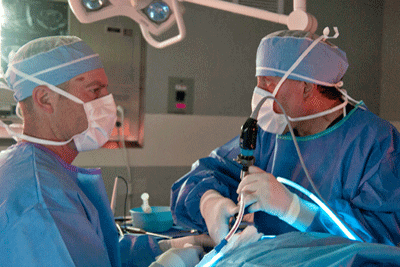A transcutaneous electrical nerve stimulation or TENS unit is a portable, pocket-sized, battery-operated device. Electrodes are applied to the skin at the area of pain. When turned on, an electric current is sent through the electrodes causing a tingling sensation in the underlying skin and muscle. The current is adjustable and may be applied in short bursts. It is thought that electric nerve stimulation blocks the pain signal to the brain, providing short-term relief. Yet, people with chronic low back pain who seek relief with a TENS unit are wasting their time and money, according to a number of published reports.
According to the TENS Practice Guideline — issued by the American Academy of Neurology and published in the academy’s journal Neurology — TENS is “ineffective” for the treatment of chronic low back pain. Of the 263 medical articles on TENS research recently identified only two had meaningful conclusions.
The two studies that had the strongest conclusions both found “no benefit” from TENS in relieving chronic lower back pain — that is, pain that has persisted for three months or longer. Three weaker studies had conflicting results, with “modest” TENS benefits found in two of them and no benefit in the third.
Lastly, the Centers for Medicare and Medicaid Services have ruled that most uses of transcutaneous electrical nerve stimulation (TENS) units will no longer be reimbursed as treatment for chronic low back pain. This panel had conducted a systematic review of published studies of TENS and concluded there was “conflicting evidence for the use of TENS in the treatment of chronic low back pain and that TENS should be deemed ineffective for this purpose.”
Note that a TENS unit cannot fix a physiological problem in the spine such as a herniated or bulging disc, sciatica, degenerative disc disease or spondylolisthesis. It can only control pain for a very limited amount of time.
While the Bonati Spine Institute encourages back and neck pain sufferers to explore conservative treatment, if these treatments fail to be effective and if your ongoing pain is ruining your quality of life, then the Bonati Spine Procedures may be your answer. Every day we successfully treat patients who have been told previously that “nothing more can be done”. Our procedures are a non-narcotic surgical alternative that does not introduce any foreign objects into the body. The procedures are gentle enough to be performed on an outpatient”basis, so no costly hospitalization is required.
With over 30 years of experience and over 70,000 successful procedures performed the Bonati Spine Procedures have been proven to be an effective final resolution to pain caused by a lumbar, cervical or thoracic spine condition.

